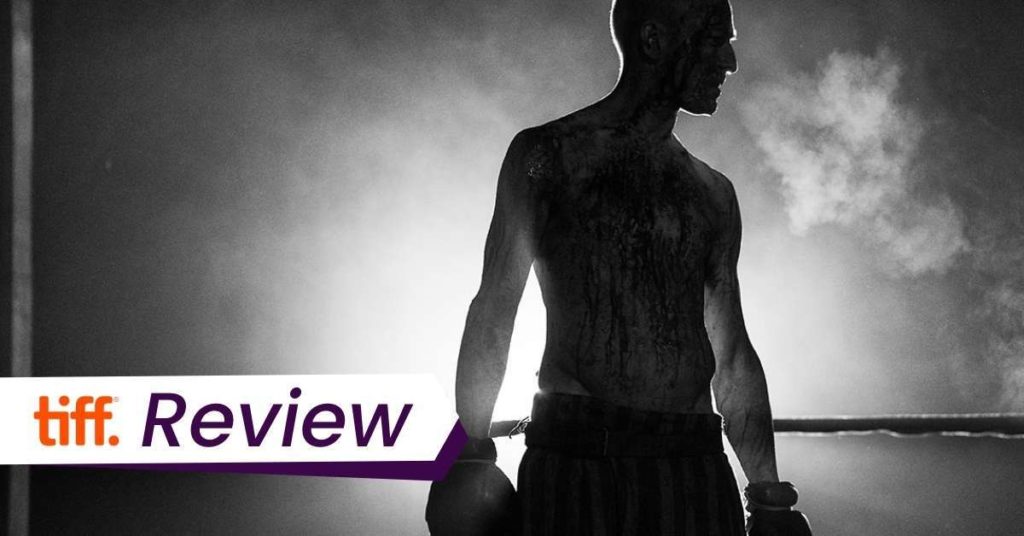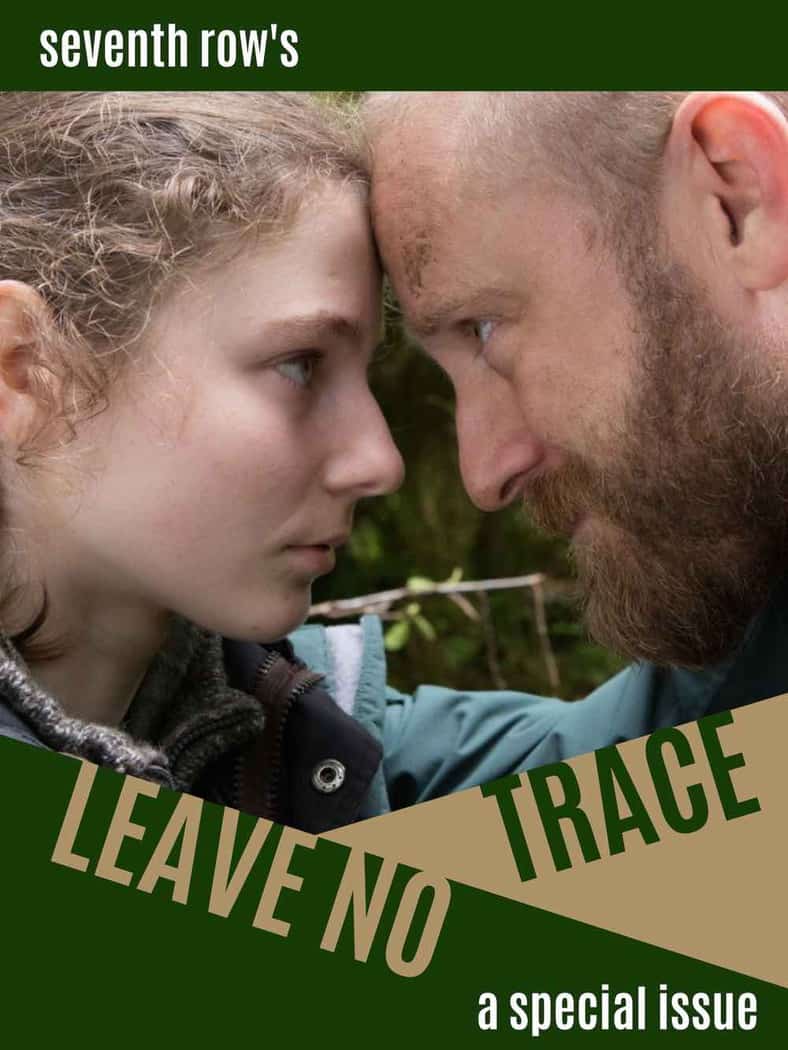Ben Foster gives a complex, layered performance in Barry Levinson’s The Survivor, a film that serves as Holocaust Trauma 101.
Click here to find all of our TIFF 2021 coverage and sign up to our TIFF newsletter.

We’re running a daily TIFF 2021 newsletter to give you all our reactions to the best new films as they premiere. Click here to sign up for free.
In 1999, Barry Levinson cast then-unknown Ben Foster as the star of Liberty Heights, a smart, sensitive, and funny exploration of post-war Jewish identity among two teenage boys coming of age. Foster gave the sort of thoughtful and charismatic turn that should have made him a star, but the film was likely just a bit too nuanced, a bit too thoughtful for it to really take off with mainstream audiences. A little over twenty years later, Levinson and Foster have reteamed for The Survivor, and this time, they’re taking no chances that gentiles don’t understand every single detail in the film, to the point that it plays like Holocaust 101 for dummies. Still, Foster once again gives a stunning, psychologically complex turn, and Levinson gives him the time and space — both in his direction and the edit — to let the performance breathe.
Much as its title suggests, The Survivor is the story of Harry Haft (Ben Foster), a man who, like most people who survived the Holocaust, had to make excruciating moral decisions to stay alive. In Haft’s case — and this is based on a true story — this meant being used as entertainment for the Nazis at Birkenau by fighting other Jews in a boxing ring. His handler, the SS officer Schneider (Billy Magnussen), saw in Harry an opportunity to make money betting on his fighter if he trained him up, and so gave Harry extra rations, special treatment, and crucially, kept him from the gas chamber. In repeated black-and-white flashbacks to Harry’s time in the camps, Schneider reminds Harry to be smart and think like a survivor: compromise and stay alive.
The film takes place over three timelines: flashbacks to Auschwitz and Birkenau in black and white, Harry as a prize fighter in the 1950s, and Harry as a father and retired fighter in the 1960s. By far, the best parts of the film are the latter timelines, because they thoughtfully explore the weight of the Holocaust trauma and how it pervades every aspect of Harry’s life. In addition to being one of the greatest actors currently working, Foster is especially adept at depicting characters living with trauma. In The Survivor, he wields stillness expertly, letting us see Harry think, feel, and struggle. The dialogue is regularly clumsy and overwrought, but you find yourself tearing up anyway because of a look or a move that Foster makes, transcending the script.
There’s a school of thought that you shouldn’t depict scenes inside concentration camps, because fiction films can only sterilize the horrors, either downplaying them or profiting from torture porn. Levinson walks a tricky line here by showing us scenes of a scarily emaciated (hopefully mostly via CGI!) Ben Foster in the camps, and sticking to scenes that are directly relevant to his story as the boxer who survived rather than the stereotypical depictions of camp life. Because the film is partly about how impossible it is for Harry to fully tell his story, it makes sense to show it rather than have him recount it; after all, the formal record was made by journalists and his son, who wrote the book on which the film was based. And Foster can tell a lot with his body language.
But there’s very little nuance to be gained from the scenes in the camps: Schneider remains a two-dimensional villain, and Harry makes the kinds of decisions we already knew he had to make and feel the weight of in Harry’s still traumatized state a decade later. The parallel images of Harry as performer and show pony at Birkenau and in present day New York highlight that he’s still playing a role defined by someone else, but the film fails to delve any deeper. Sometimes, the film’s pandering to the ignorant is outright insulting. When Harry is practicing for a fight in 1950s New York, someone cheers him on by yelling, “You’re an animal.” Harry’s reaction to this — Foster sequestering himself in a room by himself to rage in a quiet fury — tells us what we need to know, yet the film still feels the need to show a flashback to explain that “animals” are how the Nazis describe Jews.
Even hampered by prosthetics, a dodgy accent (albeit one that you quickly forget about), and Justine Juel Gillmer’s clumsy script, Foster excels. After undergoing baptism by literal fire in Auschwitz, he shows us a man reluctantly becoming something he hates because he understands he has no choice but to do awful things in order to survive. Every little hesitation Foster makes depicts a world of helplessness and emotion. More interesting, though, is the way he lumbers through life in America with singular purpose: first, to find the woman he loved and lost before he was sent to Auschwitz, and then his futile attempts to keeps his trauma away from his children and the anger he inflicts on them in place of revealing his secrets.
Vicky Krieps, who plays Foster’s love interest and then wife in America, breathes life into what could be a thankless role. The way she shows Harry compassion, letting him break down in her arms, and how Levinson will linger on her reaction when other directors might cut, reveals a complicated woman dealing with a different kind of trauma than Harry. Peter Sarsgaard also shows up in a supporting role as the journalist who gives Harry the publicity he needs to fight Rocky. Sarsgaard’s character’s innocent probing coupled with Harry’s careful evasions are made especially thoughtful because they are performed by two of the great American character actors.
The Survivor offers few insights into the trauma of surviving the Holocaust that other films haven’t developed with more depth and nuance. But it still packs an emotional punch because of the strength of the performers, and a director who knows what they need. People will call this Ben Foster’s career-best work, but really, it’s that he’s working with a director, like Debra Granik, who is working with him, giving him the time to work his magic. And if Oscar comes knocking as they so clearly are hoping, I’ll be happy to see this great actor finally awarded.
Stay in the know about TIFF 2021.
Subscribe to Seventh Row’s TIFF newsletter.
We’re running a daily newsletter during the festival: every morning, we’ll send subscribers a dispatch about all the new films we’re watching, good and bad, to let you know what’s worth keeping an eye on.
Click here to subscribe to the TIFF 2021 newsletter.

Discover one of Ben Foster’s best performances before Barry Levinson’s The Survivor
with our ebook on Leave No Trace
The book features an interview with Foster on depicting trauma and an essay on Foster’s entire career as an actor.

